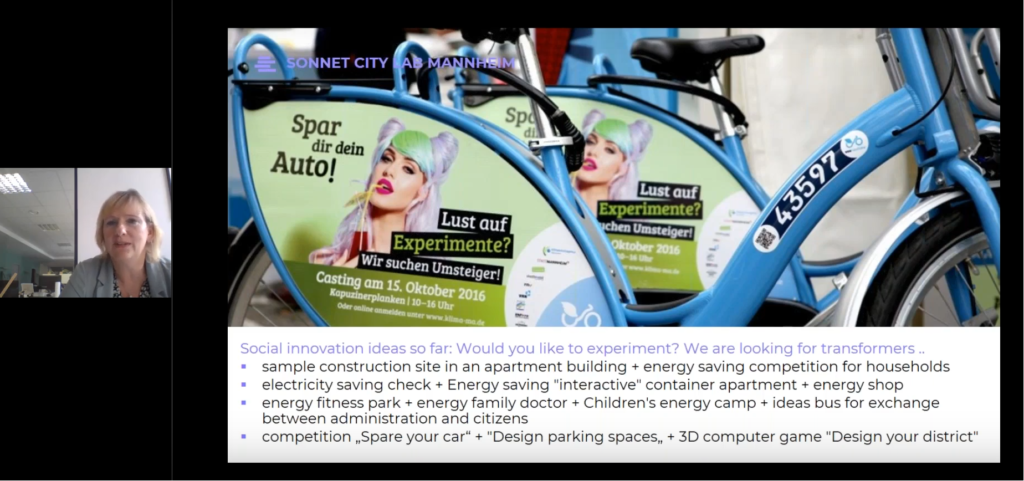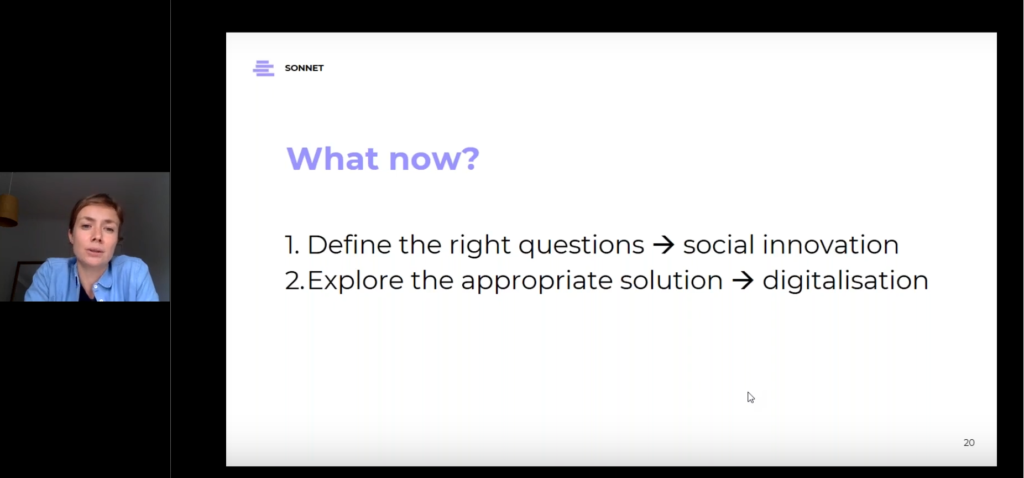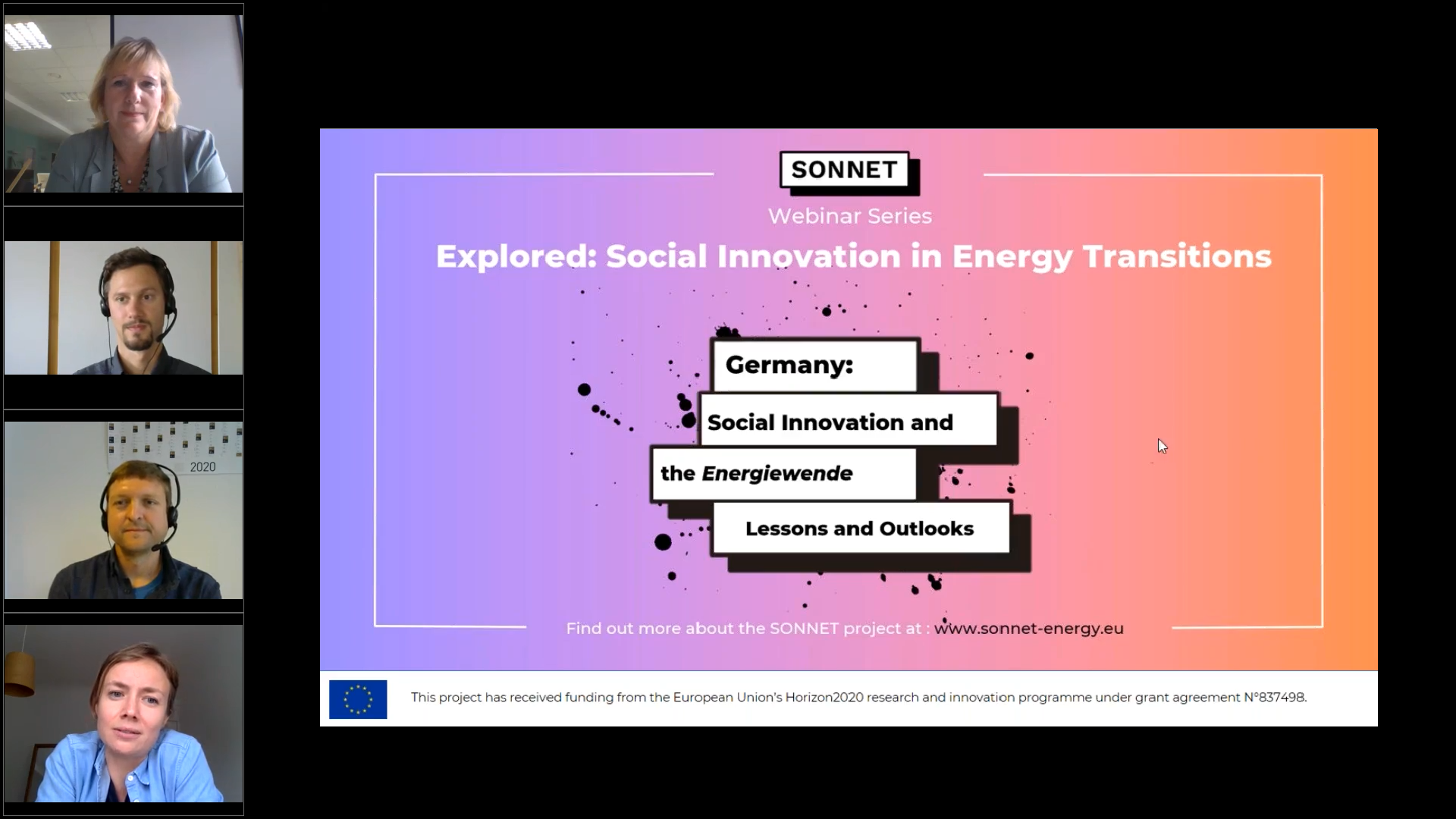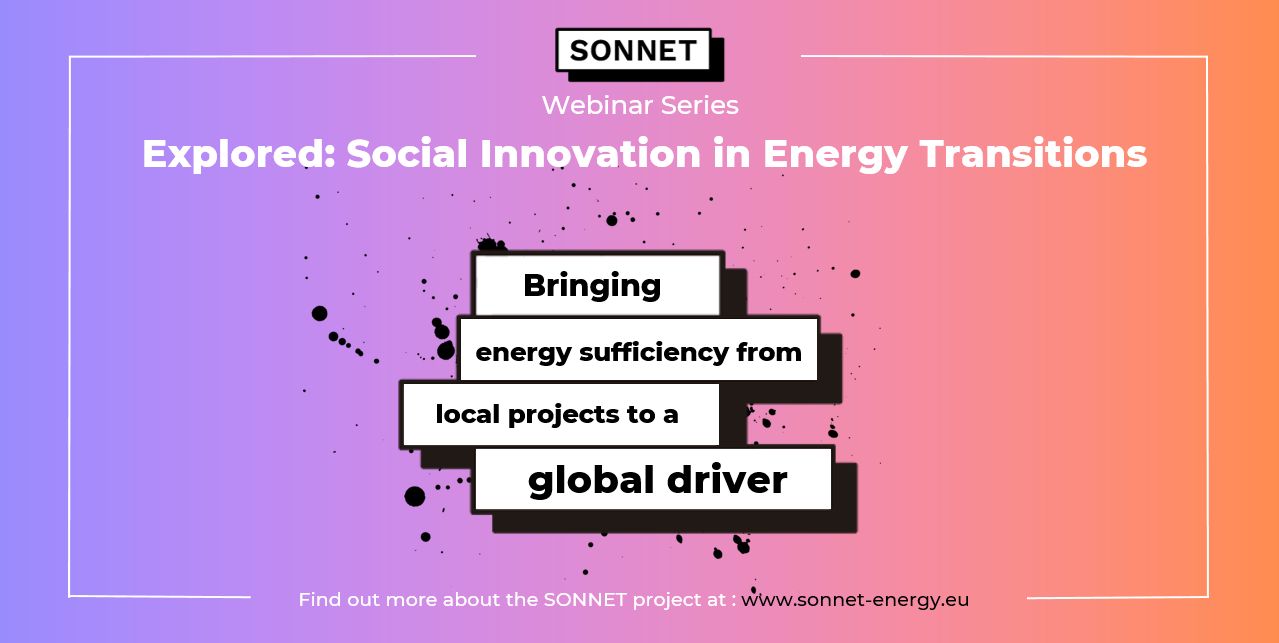Urban and rural perspectives on social innovation in Germany’s Energiewende
The Energiewende is a major plan to transform Germany’s energy system into one based mainly on renewable energy sources. It has been in place for almost a decade, and is a valuable source in support of the process of energy transition in Europe.
What can we learn from Germany’s experience with its Energiewende? What is the role of German cities and rural areas in the process? How are social innovations part of this energy transformation?
We asked these and many other questions to the panellists of our second SONNET online seminar “Germany: Social Innovation and the Energiewende – Lessons and Outlooks” and dove deeper into the urban and rural perspectives on the energy transition process with speakers:
- Carsten Rothballer, Coordinator for Sustainable Resources, Climate & Resilience at ICLEI Europe, shed light on where Germany currently stands with its Energiewende and how COVID-19 may impact the transformation process.
- Agnes Schönfelder, Director of the Climate Change Strategy Department for the City of Mannheim and CEO of the Climate Action Agency Mannheim, presented a number of actions held in Mannheim to reach the goal of becoming a climate neutral city by 2050. One of these is the SONNET City Lab, which is focused on enhancing citizen participation in the energy transition in Mannheim.
- Urszula Papajak, Programme Director for Energy at Neuland21, shared her concerns about rural areas often being left out of the transition process, despite their great potential to innovate and produce new energy solutions.
Challenges of the Energiewende
Energy transition has vast support in Germany – 95% of Germans are in favour of expanding renewables, and many see this as a very important issue. At the same time, however, the deployment of green energy – including both solar and wind energy – has slowed down recently, and the country is struggling to meet its short-term emission reduction targets.

Is the Energiewende not as successful as we would wish it to be? Well, it is definitely facing challenges, including the uneven transition across sectors. While notable changes are being seen in electricity generation, sectors like heating/cooling and mobility are far behind their emissions reductions.
“I would advocate (…) that the energy efficiency and locally-harvested renewable energy is actually a wonderful guarantor for economic recovery, because it creates local jobs and sustains them.” – Carsten Rothballer
There are also social challenges in the energy transition process that mustn’t be forgotten, such as changing energy behaviour and habits, striving for socially just transition, supporting citizen participation and community-led projects, and much more.
Urban perspectives
Cities are expected to play an increasingly important role in the energy transition. As they grow and expand their economic activity, they are becoming increasingly responsible for significant shares of carbon emissions. At the same time, local governments have the potential to boost energy transformation processes through supporting the deployment of renewables, executing energy efficiency projects, implementing education projects, supporting social innovation and more.
“For a real social transformation, we have to change the situation and the behaviour of the citizens.” – Agnes Schönfelder
The German city of Mannheim is on its way to becoming a climate neutral city in 2050. To achieve this goal, Mannheim has to introduce far-reaching changes in sectors like energy production, mobility, infrastructure, and urban greenery. But that alone will not be enough. The city also recognises how critical changing residents’ energy behaviours is to transition.
For the past decade, Mannheim has worked to encourage citizen participation and social acceptance to achieve its climate goals, using instruments like participatory budgeting, a citizen participation platform, and through building strong neighbourhoods. The municipality has implemented various projects to support changing locals’ energy habits. This includes, for example, a motivation and action programme for about 8000 people working in the city administration called “FlurfunkE”, an energy efficiency game as part of the neighbourhood refurbishment programme, and a “Climate Heroes” programme in schools and kindergartens.

Mannheim is running its SONNET City Lab in the socially-diverse urban quarter of Neckarstadt-West, where changing energy behaviour is quite a challenge. The city initiated a series of meetings using the ‘Design Thinking’ format to brainstorm which social innovations in energy could be implemented in the district.
Rural perspectives
During the first phase of the energy transition process in Germany, which was focused on expanding renewables, many actors in rural areas took the lead. Projects that are today held up as flagship examples of pathways to successfully realise the Energiewende were initiated and carried out in rural areas (e.g. Dardesheim, Oberrosphe, Wallen, Rhein-Sieg). Later on, however, when the focus shifted to integrated solutions targeting the power, transport and heating sectors, rural actors began to be overlooked and left out of the process. Why is that?
Urszula Papajak, Programme Director for Energy at Neuland21, sees many of the digital solutions necessary to the success of integrated approaches as being developed in ‘urban bubbles’, completely detached from rural realities. Start-ups and digital talents have no knowledge of, nor connection to, the rural context. This means that they fail to address rural realities and to consider larger social challenges. Furthermore, since rural areas were early pioneers of energy transition solutions, failing to engage rural actors means missing out on opportunities to tap their experiences and knowledge.
“While urban entrepreneurs keep developing answers, it’s the rural actors that hold the right questions.” – Urszula Papajak
New models and technological solutions are needed for successful energy transition in Germany. But, these must be designed together with local actors – both from cities and rural areas. Social participation and innovation are needed to ensure we are identifying the right questions and challenges to be addressed.

The SONNET “Explored: Social Innovation in Energy Transitions” series will continue to bring diverse groups together to discuss how social innovations in energy (SIEs) can contribute to more sustainable energy systems in Europe. Stay tuned for updates and join us in September for the next edition to take the conversation forward!
In the meantime, get involved and stay in touch:
- Click here to watch the recording of our Energiewende discussion, and to read more about the overarching series.
- Check out our first Energy Read.
- Subscribe to our mailing list and follow us on twitter to stay up-to-date.





 The project has received funding from the European Union’s Horizon 2020 research and innovation programme under grant agreement No 837498.
The project has received funding from the European Union’s Horizon 2020 research and innovation programme under grant agreement No 837498.